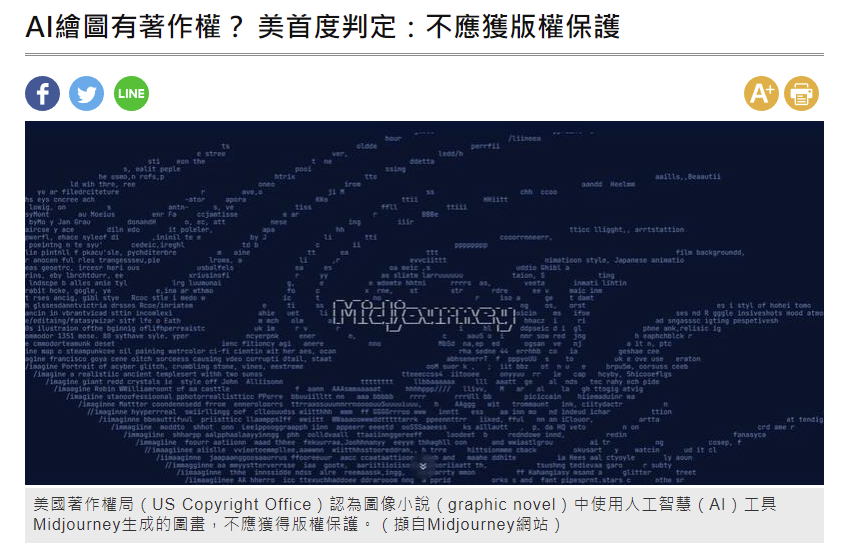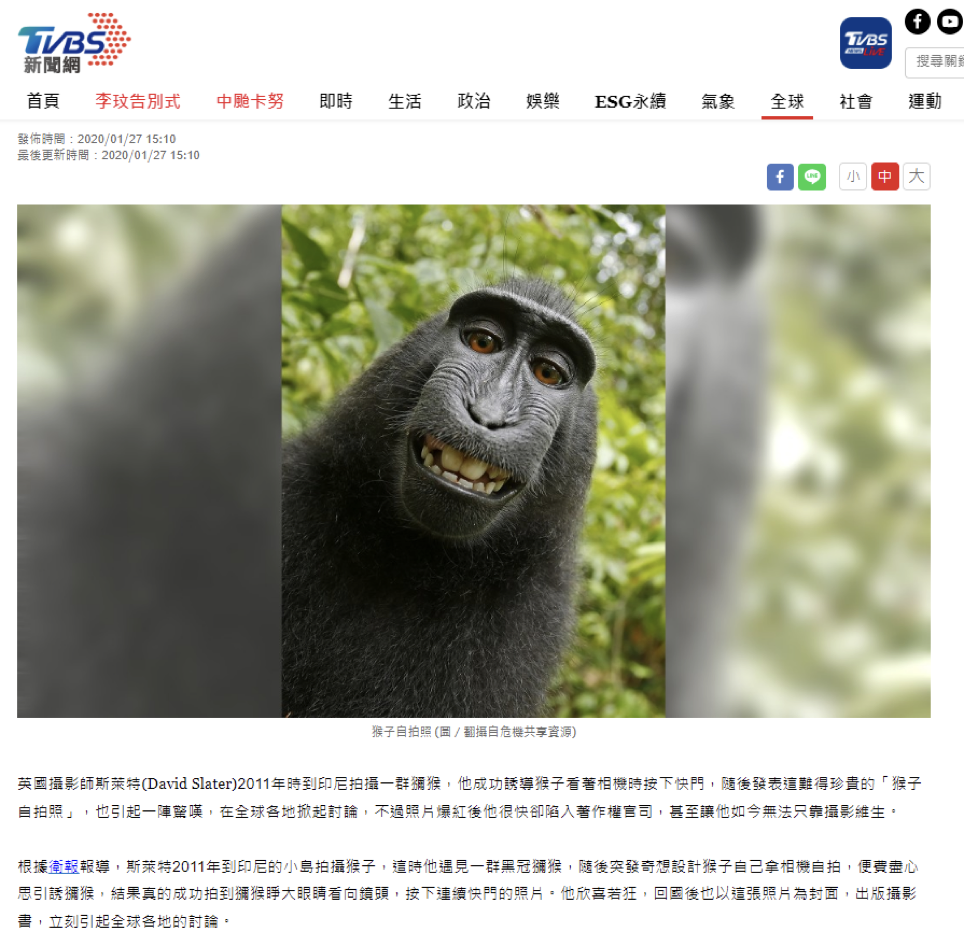I. Does AI-Generated Work Have Copyright?
Taiwan's Copyright Act, Article 1, clearly stipulates:
The legislative purpose of copyright is to "protect the copyright interests of 'human' authors."- From this provision, it is evident that copyright protection is limited to works created by "human beings."- Taiwan's Ministry of Economic Affairs Intellectual Property Office (IPO) also explicitly states that works must originate from natural persons or legal entities to be eligible for copyright protection.- In principle, intellectual creations produced by machines or technology cannot enjoy copyright.

II. Standards for Determining Copyright Protection
As mentioned earlier, Taiwan's Copyright Act aims to protect the copyright interests of "human" authors. To determine the criteria for works eligible for copyright protection:
✔️ It must be a product of "human" intellectual effort.
✔️ This intellectual activity must be expressed through "manifestation."
✔️ The work must be independently created and possess creativity.
✔️ The work must belong to the "literary, scientific, artistic, or other academic fields."
✔️ The above work must have a minimum level of "creativity" (originality).
※Please note that constitutional texts, laws, slogans, various test questions held under legal regulations, and language works derived from news reports are not subject to copyright protection.
**News Examples:**
- AI Artwork: Does It Have Copyright? First U.S. Determination: Should Not Receive Copyright Protection

(Source: Liberty Times, 2023/02/23)
- Can AI Be a Copyright Holder? How Does the U.S. Decide?


(DABUS-created AI-generated artwork "Entering Heaven Soon" - Source: PetaPixel)
- Do Monkeys Have Copyright?

(Source: TVBS News, 2020/01/27) Photographer Entices "Monkey Selfies" Successfully - Photos Go Viral but Face Severe Consequences
In summary, a work must be a product of "human" intellectual creation to be considered for copyright protection. Works expressing creativity by humans are protected by copyright law, while those produced through mechanical or automatic computations without human creativity injected into them are not protected under copyright law.








